Evans Off Camber - Wrenching

It's more than just maintaining your bike
When we first decide to buy a motorcycle and start riding, we think the whole experience will be what happens out on the road – the wind in the hair, bugs in the teeth, freedom and individuality and living in the moment and all that clichéd stuff about riding that is totally true and an essential part of the riding experience.
However, when thinking back about my first years of riding, something else stands out as an unexpected benefit. I learned how to wrench on my own bikes. Now, this isn’t gonna be a story about a guy who bought a motorcycle and ended up with motor oil running through his veins, building hotted-up race engines (with the occasional cheater) or restoring long-disused bikes to perfect running condition.
My story is a bit more modest. With my cars, I was already acquainted with oil changes, air filter replacements and the occasional spark plug swap. So, after my bike got its first service, I took over those duties. At that time, my hardly complete tool kit could fit in a red Craftsman box that was about the size of your average lunch box. Still, it was enough to get started with my bike. When I left for a cross-country trip shortly after buying my first bike, one of the items I’d assembled was a RevPack ToolPack outfitted with everything that a Clem Salvadori article said I should carry on a trip of this length (plus a few extras I figured I’d need).
And darned if I didn’t use a bunch of ’em. So, it began.
From repairing a broken brake pedal on the side of the road in Meridian, MS, to adjusting and lubing my chain with that travel tool kit in a motel parking lot just east of Death Valley in Shoshone, CA, while a flock of Gold Wing riders drank beer and teased me good-naturedly. Or to doing my first valve adjustment – twice in one evening – because my bike was my only means of getting to work the next day, and I’d set the clearances too loose, making the top end go clatticka-clatticka-clatticka when I started the engine after putting the bike completely back together. (And there’s another lesson, too!) I’d learned some resilience.
By the time I got to the point of stripping my bike bare, to replace a bent frame and the internal parts of the engine that the bent frame had gotten intimate with, I gained confidence. And just a bit of self-knowledge. I realized that, with enough time, a factory service manual, an occasional extra set of hands, and an experienced – and tolerant – friend on the other end of the phone, there was very little I couldn’t handle with the careful application of patience.
Now, I’m not telling you to be like me and go total your bike so that you can learn how to put it back together. I’m also certainly not disputing the old saw that performing your own maintenance helps you become familiar with your bike and may let you spot small problems before they become big ones – because it’s true. In spades.
Instead, like Robert Pirsig, I’m saying that it’s more than the motorcycle you’re working on. With every turn of the wrench or oil change or tire plug or hydraulic bleed or aftermarket exhaust install or removing a bent lever or decoding a wiring diagram or chain replacement or broken bolt removal or tire change or top-end rebuild or cable lubrication or brake-pad swap or clutch-plate replacement or coolant-system flush or suspension upgrade or shiny gewgaw bolt-on, with every challenge – no matter how small – you’re working on your mechanical and problem solving skills, both of which will make your life easier without even trying.
So, go lay your hands lovingly on your bike. Get oil under your fingernails. Have fun. Still, don’t be surprised when you learn a little about what you’re made of, too. Oh, and you’ll end up owning a lot of cool tools.

Like most of the best happenings in his life, Evans stumbled into his motojournalism career. While on his way to a planned life in academia, he applied for a job at a motorcycle magazine, thinking he’d get the opportunity to write some freelance articles. Instead, he was offered a full-time job in which he discovered he could actually get paid to ride other people’s motorcycles – and he’s never looked back. Over the 25 years he’s been in the motorcycle industry, Evans has written two books, 101 Sportbike Performance Projects and How to Modify Your Metric Cruiser, and has ridden just about every production motorcycle manufactured. Evans has a deep love of motorcycles and believes they are a force for good in the world.
More by Evans Brasfield



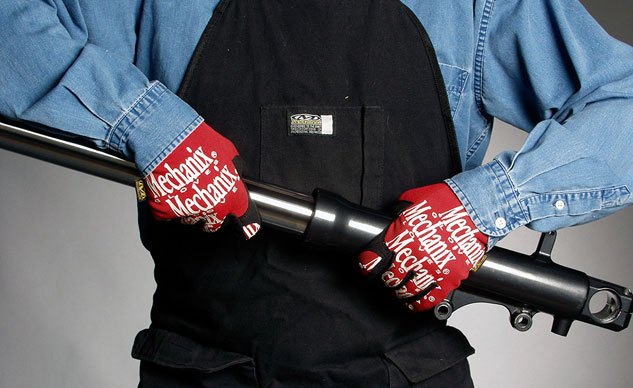
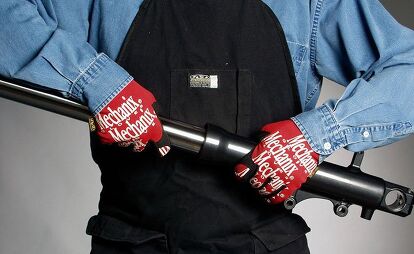









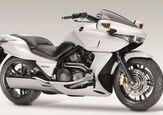


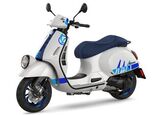




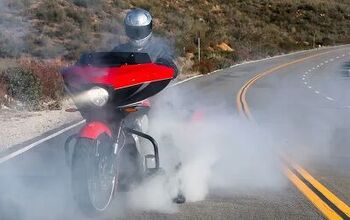













Comments
Join the conversation
I've reached the point where I don't want to do it anymore, but have to because of expense. It would be nice if bikes had the maintenance simplicity of a car, but most don't, at least not the ones I like. I can tell you that owning a BMW has it's own maintenance voodoo and my next bike will have less. With my cars, they have an oil change interval of 10K miles, plugs and air filter every 50K. No timing belt either. when I have a major service on the RT, it's like running down the checklist of aircraft maintenance. Anyway, I like the bike, I just think the Germans can do better with upkeep.
Been riding and wrenching for 52 years. I do more maintenance now than ever. My passion seems to be, acquiring an old bike and changing virtually everything!
I like to know how to take my bike apart and put it back together, knowing it is right! To me, there is a real satisfaction that comes with such familiarity. I am still learning every moment! Currently, I've got a daily driver Sportster and a project super-moto Buell that is starting out with a motor and a frame neck. Right now, I'm off to adjust the valves on my VDub powered street buggy. Happy wrenchin', y'all!